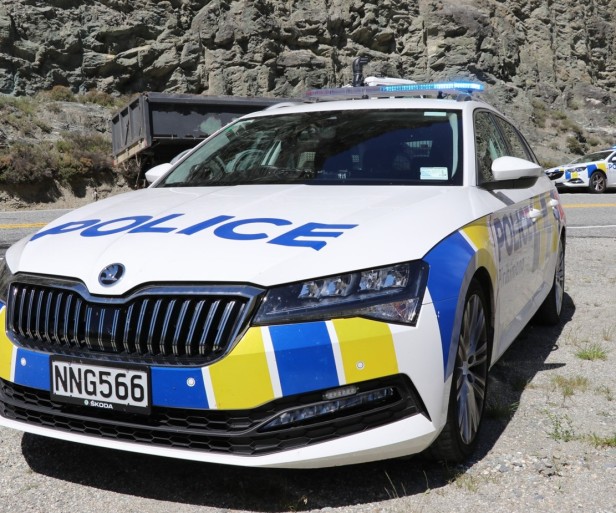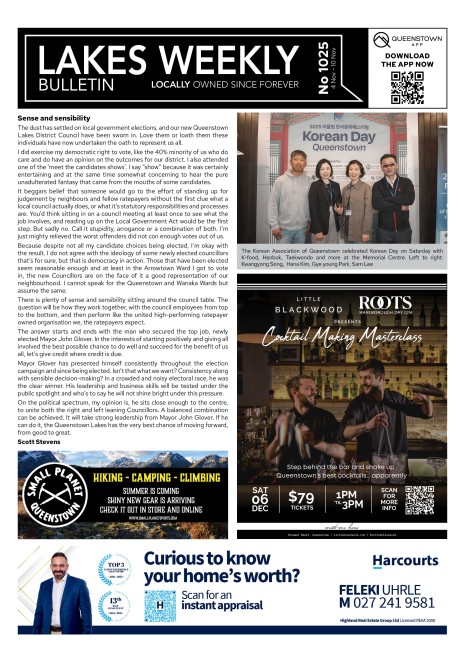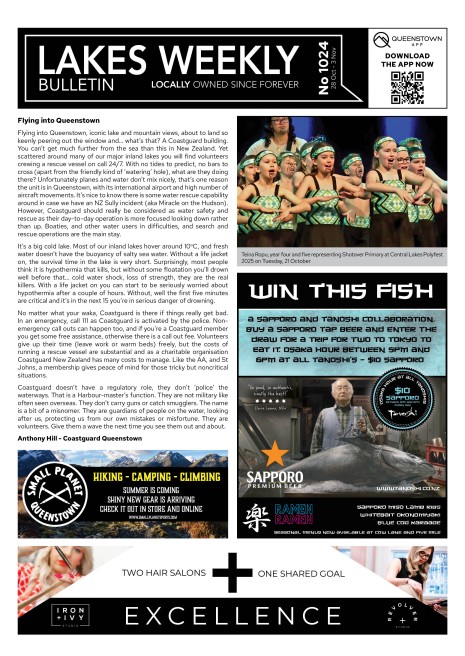Brothels bylaw proves contentious
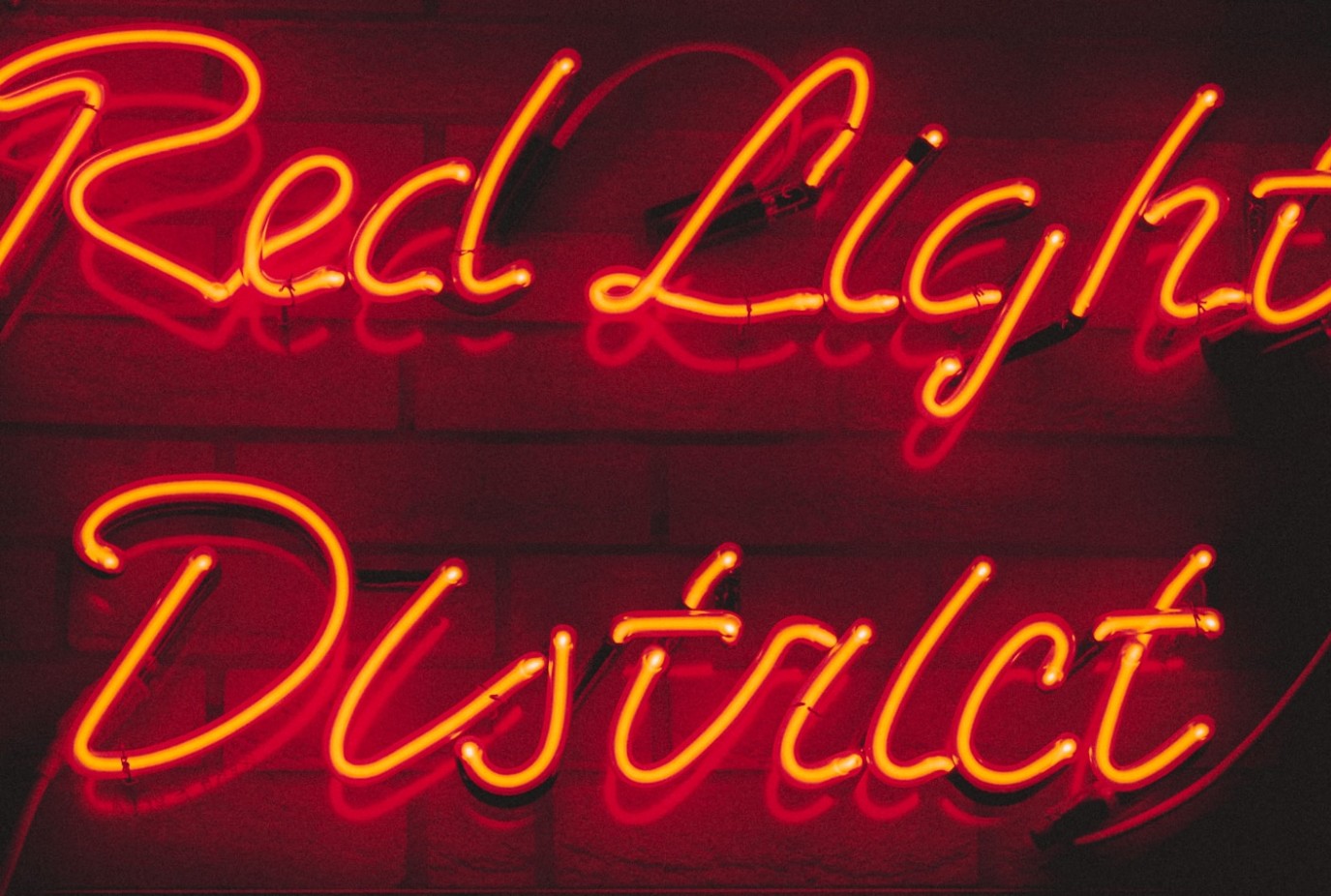
An "exploitative, depraved industry" fuelled by dirty money, or a legitimate commercial activity stigmatised by "negative beliefs born from a lack of understanding and education"?
Twenty submissions have been made on Queenstown Lakes' new draft Brothel Control bylaw, ahead of the hearing panel meeting on Tuesday.
The majority oppose the draft penned by the district council - but for wildly different reasons. Many believe it is too permissive, while others say it doesn't go far enough.
The bylaw would allow for a massive expansion of Queenstown and Wānaka's red light districts, to cover the majority of the two downtowns. It would also remove the restriction that they cannot be on the ground floor or below, along with other technicalities.
At present, brothels are only allowed to operate within small areas of Queenstown and Wānaka CBDs. But, in reality, there is no red light district. The resort’s last long-running brothel, Candy’s, closed in 2008, and there have been none registered since 2013, although an illegal Huff St brothel was closed down in 2018, with two migrant sex workers deported.
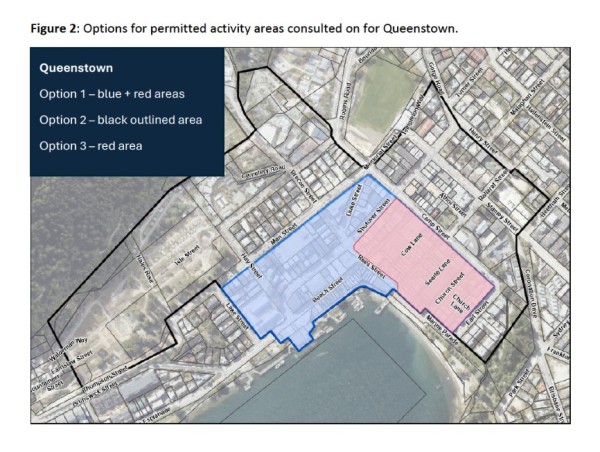
Part of the thinking behind the revision of the 2017 bylaw is it would enable more owner-operated brothels, with one or two sex workers, giving them great protection than visiting clients in hotels or private homes.
Of the 20 submissions, three submissions were made from people in Queenstown, four from Wānaka, and 13 from outside of the district. And they illustrate the strength of feeling on both sides of the fence.
Out-of-town submitter Anna McKendry goes on a full caps-lock tirade, labelling prostitution "an incredibly exploitative, depraved industry".
"Most prostituted women are drug addicts, victims of violence and abuse, many are trafficked, pimped and abused and have NO POWER," her submissions reads. "Prostitution IS NOT WORK. The longer a woman stays in this industry the WORSE her life outcomes will be. NO OTHER WORK is so regressive. The MONEY men pay to enter the body of a woman is dirty money, most of them hate it."
She cautions against ruining Queenstown Lakes by making it the "next Thailand or Amsterdam".
McKendry is among a dozen of the submitters who are opposed to decriminalised sex work, made possible by the Prostitution Reform Act 2003, and brothels in principle, with several, such as Claudia Wallace, believing red light districts "often attract criminal activities, including drug trafficking, human trafficking, and prostitution-related violence".
Others are less incendiary. Wānaka Presbyterian Minister Ian Hyslop says the decriminalisation of prostitution has been "a community disaster harming families and the welfare of workers caught in the industry".
He says many locals, himself included, have significant concerns over the area where brothels are permitted being expanded.
"The intent of the Prostitution Reform Act was never to allow Prostitution in family and residential areas - yet this has been the outcome of the flawed and unhelpful legislation," Hyslop says. "It is one thing to have the prostitution industry in red light areas that families can avoid but to allow brothels in family shopping areas, tourist areas frequented by families holidaying is unacceptable for our community."
Other notable submissions opposing the changes include Jill Ovens of the Women's Rights Party, Jennifer Scoot of Suffragettes NZ and Bob McCoskrie of Family First NZ. Meanwhile, some local submitters want the bylaw retained in its current form, with some highlighting the fact the expanded boundaries borders are close to primary schools.
'Doesn't go far enough'
Only three of the submitters are in favour of more permissive policies.
Queenstowner Danna Burton says QLDC should revoke the bylaw and allow brothels to operate as a commercial activity under the District Plan.
She says the draft bylaw does not support the intent of the Prostitution Reform Act 2003, which "safeguards the human rights of sex workers and protects them from exploitation" and "promotes the welfare and occupational health and safety of sex workers".
This is because the bylaw restricts the red light district to expensive downtown areas, effectively making it small owner operated brothels not financially viable.
"The Queenstown Lakes District Plan is sufficiently capable to regulate Brothels and SOOB's commercial activity, as it does with any other commercial activity operating in the district," Burton says.
"To treat the sex work industry differently than any other legal commercial activity is discriminator and stigmatizes sex work and those who provide and/or use those services. It has been over two decades since sex work was decriminalized. By treating this particular legal industry definitely from others, continues to create stigma by creating negative beliefs born from a lack of understanding and education."
Submitter Stephanie McMullan says she fully supports the increased activity in line with the Prostitution Reform Act.
Finally, Dame Catherine Healy of NZPC: Aotearoa New Zealand Sex Workers' Collective, males a lengthy submission acknowledging the improvement made by the draft bylaw but maintaining it does not far enough.
"We believe the area is far too restrictive, and does not allow for affordable properties for sex workers to operate from. Sex workers need options other than managed brothels, as they do not all like to work for a managed brothel, but prefer to be self-managing and providing scope for sex workers to operate privately, for themselves or with another sex worker, without a manager accomplishes this.
"They prefer to work discretely, and not draw attention to themselves. Ideally, we would like to see the ability of sex workers to work from home under the same regulations that apply to home-based occupations. Unfortunately, the proposed bylaw does not do so."
Dame Catherine, who was consulted by QLDC in the initial stages of the bylaw revision, says NZPC is "deeply concerned" that it’s nearly impossible for sex workers to work within the current and proposed bylaws in the Queenstown Lakes District.
"It’s 20 years since the Prostitution Reform Act 2003 and most councils with previously restrictive bylaws, have repealed these, and adopted a more realistic approach that doesn’t create outcomes where sex workers are forced to work in ways that compromise their safety and health.
"It’s extremely difficult for sex workers to find venues to work from that meet the distance requirements for the location of brothels. Consequently, if sex workers have a problem and need to seek support, they are less inclined to do so if they are working in breach of a by-law. It appears to be unreasonable."
But Family First NZ CEO / Founder Bob McCoskrie, in his submission, says NZPC dominates the conversation in this country and is to blame for misinformation which sees the New Zealand’s prostitution law reform widely lauded, particularly overseas.
He says NZPC "does not provide support for those wishing to exit, has no official contact with the black market of prostitution, and plays down the industry-wide realities of violence and exploitation - denying the existence of under-age abuse and internal trafficking, rejecting the voices of exited women, and amplifying the voices of pimps."
He wants brothels removed from the CBD and an explicit ban on street prostitution.
Six submitters will make in-person submissions on Tuesday to the panel, which consists of councillors Cody Tucker, Melissa White, Craig Ferguson and Gavin Bartlett. The submitters are Dame Catherine, Danna Burton, Jennifer Scott, Janet Alexandra of Women's Declaration International NZ, Bob McCoskrie, and Ally-Marie Diamond of the Wahine Toa Rising Charitable Trust.
Read the submissions here.


